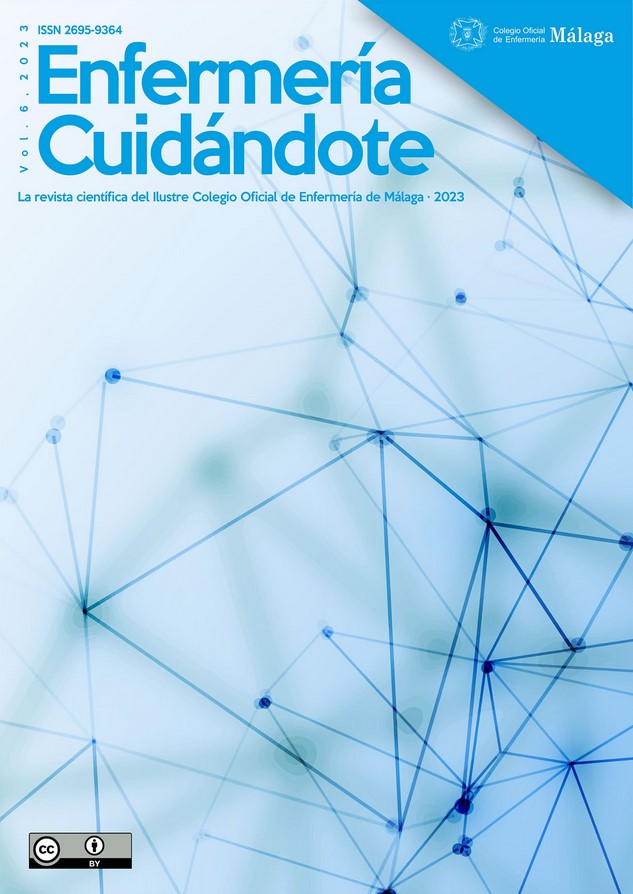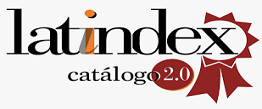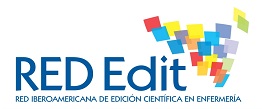Impact of the Covid-19 pandemic on pregnant women's awareness of warning signs and symptoms in pregnancy. Research Protocol
DOI:
https://doi.org/10.51326/ec.6.1587419Keywords:
Antenatal Education, Prenatal Education, SARS-CoV2, Signs and SymptomsAbstract
Introduction: "Childbirth and parenting preparation" (CPP) can reduce maternal stress, improve self-efficacy, decrease anxiety levels and achieve better obstetric outcomes. However, there is limited evidence of its effects on maternal or fetal results. Therefore, it must be standardized to elucidate its actual effects on physical and mental health. During 2019-2021, the COVID-19 pandemic has caused a decrease in CPP as the global health crisis has affected the supply of resources and the services offered to the population.
Objective: To evaluate the influence of the pandemic caused by the SARS-CoV-2 on the knowledge of pregnant women about the warning signs and symptoms during pregnancy. As specific objectives: to gauge the level of knowledge acquired by pregnant women in CPP; evaluate the level of knowledge of pregnant women have about the warning signs and symptoms during pregnancy without receiving CPP; of pregnant women who receive CPP through online group classes and those who receive it individually; measure the ability of the pregnant woman to detect situations of risk/alarm at a general level; according to age and according to their educational level.
Methods: This is a quasi-experimental project that consists of evaluating three groups of pregnant women. Two groups receive information on preparing for birth and parenting from their health centre with different methodologies included and a third group lacks such training. Data collection will be carried out by evaluating knowledge with an accepted and validated questionnaire; The information obtained from each group will be subject to a statistical analysis to establish if there are significant differences between the groups with respect to the level of knowledge of the warning signs and symptoms during a pregnancy.
Downloads
References
Amorós P, coordinador. Educación maternal: preparación para el nacimiento. Barcelona: Generalitat de Catalalunya. Departament de Salut; 2009. Disponible en: http://comatronas.es/contenidos/2012/03/textos/Preparacion_para_el_nacimiento.pdf [Consultado 23-01-2021]
Federación de Asociaciones de Matronas. Oviedo: Federación de Asociaciones de Matronas de España. Educación maternal. Disponible en: https://www.federacion-matronas.org/2021/01/14/educacion-maternal-embarazo/ [Consultado 23-01-2021]
Catling CJ, Medley N, Foureur M, Ryan C, Leap N, Teate A, et al. Group versus conventional antenatal care for women. Cochrane Database Syst Rev. 2015; 15(2):CD007622. https://doi.org/10.1002/14651858.cd007622.pub3
Guillén Rodríguez M, Sánchez Ramos J, Toscano Márquez T, Garrido Fernández MI. Educación maternal en atención primaria. Eficacia, utilidad y satisfacción de las embarazadas. Aten Primaria. 1999;24(2):66-74. Disponible en: https://www.elsevier.es/es-revista-atencion-primaria-27-articulo-educacion-maternal-atencion-primaria-eficacia-13305 [Consultado 23-01-2021]
Ortiz Villanueva ML. Por qué acuden y cómo influye la educación maternal en un grupo de mujeres. Alcalá de Henares: Universidad de Alcalá; 2014. Disponible en: https://dialnet.unirioja.es/servlet/tesis?codigo=100650&info=resumen&idioma=SPA [Consultado 11-02-2021]
Sanz M. Los programas de educación maternal-paternal en el sistema nacional de salud. Polibea. 2016;121:19–22.
Aba YA, Kömürcü N. Antenatal Education on Pregnant Adolescents in Turkey: Prenatal Adaptation, Postpartum Adaptation, and Newborn Perceptions. Asian Nurs Res. 2017;11(1):42–9. https://doi.org/10.1016/j.anr.2017.03.003
Shahid A, Johnson R. Evaluation of an online antenatal course "Understanding pregnancy, labour, birth and your baby" by the Solihull Approach. Evid Based Midwifery. 2018;16(3):101–6.
Yikar SK, Nazik E. Effects of prenatal education on complaints during pregnancy and on quality of life. Patient Educ Couns. 2019;102(1):119-25. https://doi.org/10.1016/j.pec.2018.08.023
Martínez-Galán P, Martín-Gallardo E, Macarro-Ruiz D, Martínez-Martín E, Manrique-Tejedor J. Educación prenatal e inicio de la lactancia materna: Revisión de la literatura. Enferm Univ. 2017;14(1):54–66. Disponible en: https://www.elsevier.es/en-revista-enfermeria-universitaria-400-articulo-educacion-prenatal-e-inicio-lactancia-S1665706316300689 [Consultado 25-01-2021]
Ekström A, Tamang L, Pedersen C, Byrskog U, Teijlingen E, Erlandsson K. Health care provider's perspectives on the content and structure of a culturally tailored antenatal care programme to expectant parents and family members in Nepal. J Asian Midwives. 2020;7(1):23–44. Disponible en: https://ecommons.aku.edu/jam/vol7/iss1/5/ [Consultado 27-01-2021]
Roch G, Borgès Da Silva R, de Montigny F, Witteman HO, Pierce T, Semenic S, et al. Impacts of online and group perinatal education: a mixed methods study protocol for the optimization of perinatal health services. BMC Health Serv Res. 2018;18(1):382. https://doi.org/10.1186/s12913-018-3204-9
Leal N de J, Claudino Barreiro M do S, Mendes RB, Cartaxo Freitas C kalline A. Prenatal care: nurses´ testimonial. Rev Pesq Cuid Fundam. 2018;10(1):113-22. https://doi.org/10.9789/2175-5361.2018.v10i1.113-122
Gökçe İsbir G, İnci F, Önal H, Yıldız PD. The effects of antenatal education on fear of childbirth, maternal self-efficacy and post-traumatic stress disorder (PTSD) symptoms following childbirth: an experimental study. Appl Nurs Res. 2016;32:227-32. https://doi.org/10.1016/j.apnr.2016.07.013
Niemczyk NA. Parents Desire Parenting Education During Prenatal Care. J Midwifery Womens Health. 2016;61(2):278. https://doi.org/10.1111/jmwh.12444_3
Suto M, Takehara K, Yamane Y, Ota E. Effects of prenatal childbirth education for partners of pregnant women on paternal postnatal mental health and couple relationship: A systematic review. J Affect Disord. 2017;210:115-21. https://doi.org/10.1016/j.jad.2016.12.025
Entsieh AA, Hallström IK. First-time parents' prenatal needs for early parenthood preparation-A systematic review and meta-synthesis of qualitative literature. Midwifery. 2016;39:1-11. https://doi.org/10.1016/j.midw.2016.04.006
Deave T, Johnson D, Ingram J. Transition to parenthood: the needs of parents in pregnancy and early parenthood. BMC Pregnancy Childbirth. 2008;8:30. https://doi.org/10.1186/1471-2393-8-30
da Silva Santos A, Rodrigues ARM, Moura da Silveira MA, Paiva Rodrigues D, de Jesus Silva Bezerra Dos Anjos S, Júnior ARF, et al. Metasynthesis of educational strategies used to promote prenatal health. J Obstet Gynaecol. 2020;40(2):147-52. https://doi.org/10.1080/01443615.2019.1604642
Buultjens M, Farouque A, Karimi L, Whitby L, Milgrom J, Erbas B. The contribution of group prenatal care to maternal psychological health outcomes: A systematic review. Women Birth. 2021;34(6):e631-42. https://doi.org/10.1016/j.wombi.2020.12.004
Silva EP, Lima RT, Osório MM. Impact of educational strategies in low-risk prenatal care: systematic review of randomized clinical trials. Cien Saude Colet. 2016;21(9):2935-48. https://doi.org/10.1590/1413-81232015219.01602015
Aceituno Velasco L, Aguado Maldonado J, Arribas Mir L, Caño Aguilar A, Corona Páez I, Martín López JE, et al. Embarazo, parto y puerperio. 3ª ed. Sevilla: Consejería de Igualdad, Salud y Políicas Sociales; 2014. Disponible en: https://www.juntadeandalucia.es/export/drupaljda/salud_5af1956fa966b_embarazo_parto_puerperio_septiembre_2014.pdf [Consultado 27-03-2021]
Organización Mundial de la Salud. La OMS señala que las embarazadas deben poder tener acceso a una atención adecuada en el momento adecuado. Comunicado de prensa. Ginebra: OMS; 7 de noviembre de 2016. Disponible en: https://www.who.int/es/news/item/07-11-2016-pregnant-women-must-be-able-to-access-the-right-care-at-the-right-time-says-who [Consultado: 28-03-2021]
Hernández Aguado AS, Benito Díaz I, Martínez Verdú MA. Cuándo ir a Urgencias. Barcelona: Hospital Clínic Barcelona; 20 de febrero de 2018. Disponible en: https://www.clinicbarcelona.org/asistencia/enfermedades/embarazo-y-parto/signos-de-alarma [Consultado 28-03-2021]
Valencia-Rincón E, Reyna-Villasmil E, Torres-Cepeda D, Mejia-Montilla J, Reyna-Villasmil N, Fernández-Ramírez A, et al. Disminución de los movimientos fetales y resultante perinatal en embarazos a término. Avan Biomed. 2017;6(2):98-104. Disponible en: https://dialnet.unirioja.es/descarga/articulo/6139126.pdf
Sulca-Díaz RO, Peñafiel-Palomino RP, De la Rosa Ventura AJ. Conocimiento y actitudes de las gestantes sobre los principales signos y síntomas de alarma en el embarazo, Hospital Regional de Ica, Enero 2017. Rev Med Panacea. 2017;6(1):23-7. https://doi.org/10.35563/rmp.v6i1.180
Daly LM, Boyle FM, Gibbons K, Le H, Roberts J, Flenady V. Mobile applications providing guidance about decreased fetal movement: Review and content analysis. Women Birth. 2019;32(3):e289-96. https://doi.org/10.1016/j.wombi.2018.07.020
Sanders RA, Crozier K. How do informal information sources influence women's decision-making for birth? A meta-synthesis of qualitative studies. BMC Pregnancy Childbirth. 2018 ;18(1):21. https://doi.org/10.1186/s12884-017-1648-2
Ahmad N, Nor SFS, Daud F. Understanding Myths in Pregnancy and Childbirth and the Potential Adverse Consequences: A Systematic Review. Malays J Med Sci. 2019;26(4):17-27. https://doi.org/10.21315/mjms2019.26.4.3
Juan J, Gil MM, Rong Z, Zhang Y, Yang H, Poon LC. Effect of coronavirus disease 2019 (COVID-19) on maternal, perinatal and neonatal outcome: systematic review. Ultrasound Obstet Gynecol. 2020;56(1):15-27. https://doi.org/10.1002/uog.22088
Deshmukh V, Motwani R, Kumar A, Kumari C, Raza K. Histopathological observations in COVID-19: a systematic review. J Clin Pathol. 2021;74(2):76-83. https://doi.org/10.1136/jclinpath-2020-206995
Vico Arias P, Ruiz Garrido E, Iglesias Moya J. Educación Maternal: Un reto durante la pandemia por Covid-19. Paraninfo Digit. 2020;32:e32091d. Disponible en: https://ciberindex.com/index.php/pd/article/view/e32091d [Consultado 23-01-2021]
Hong K, Hwang H, Han H, Chae J, Choi J, Jeong Y, et al. Perspectives on antenatal education associated with pregnancy outcomes: Systematic review and meta-analysis. Women Birth. 2021;34(3):219-30. https://doi.org/10.1016/j.wombi.2020.04.002
Abuidhail J, Mrayan L, Jaradat D. Evaluating effects of prenatal web-based breastfeeding education for pregnant mothers in their third trimester of pregnancy: Prospective randomized control trial. Midwifery. 2019;69:143-9. https://doi.org/10.1016/j.midw.2018.11.015
Bomberienth Astete MA, editor. Cómo investigar con éxito en Ciencias de la Salud. Granada: Escuela Andaluza de Salud Pública; 2012. Disponible en: https://www.easp.es/project/investigar-con-exito-en-ciencias-de-la-salud/ [Consultado 28-03-2021]
Ley Orgánica 15/1999, de 13 de diciembre, de Protección de Datos de Carácter Personal. Boletín Oficial del Estado, número 298, (14 de diciembre de 1999). Disponible en: https://www.boe.es/buscar/doc.php?id=BOE-A-1999-23750 [Consultado 14-04-2021]
Real Decreto 994/1999, de 11 de junio, por el que se aprueba el Reglamento de medidas de seguridad de los ficheros automatizados que contengan datos de carácter personal. Boletín Oficial del Estado, número 151, (25 de junio de 1999). Disponible en: https://www.boe.es/eli/es/rd/1999/06/11/994 [Consultado 14-04-2021]
Ley 14/2007, de 3 de julio, de Investigación biomédica. Boletín Oficial del Estado, número 159, (4 de julio de 2007). Disponible en: https://www.boe.es/eli/es/l/2007/07/03/14 [Consultado 14-04-2021]
Decreto 8/2020, de 30 de enero, por el que se regulan los órganos de ética asistencial y de la investigación biomédica en Andalucía. Boletín Oficial de la Junta de Andalucía, número 24, (5 de febrero de 2020). Disponible en: https://www.juntadeandalucia.es/boja/2020/24/3 [Consultado 14-04-2021]
Manterola C, Otzen T. Los sesgos en investigación clínica. Int J Morphol. 2015;33(3):1156-64. http://dx.doi.org/10.4067/S0717-95022015000300056




















